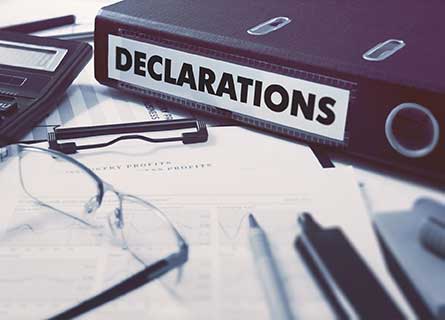Sending A Letter of Demand in Singapore
21.02.2024A letter of demand is a crucial document in resolving legal disputes. It can either settle the dispute amicably or be the start of a formal legal process. In Singapore, a letter of demand is important in civil proceedings and can be used as evidence in court proceedings. It is, therefore, critical to understand the intricacies of drafting and sending a letter of demand.
Whether you want to demand payment for an outstanding debt, request compensation for breach of contract, or negotiate what you feel is a wrongful dismissal, a letter of demand can be the first step to achieving your goal.
This article will explain what a letter of demand is, when it is a good idea to send a letter of demand, and what you should include in your letter of demand. It will touch on what to do if the recipient ignores the letter of demand and whether you need a lawyer to draft your letter of demand.
We also touch on negotiation after sending a letter of demand and what to do if you receive a letter of request.
What is a letter of demand?
A letter of demand is a written communication to the other party setting out your legal claim and the demands you want the recipient to comply with. It is not a formal court document, but it can be the first step towards formal proceedings – or the last step before taking legal action.
When is it a good idea to send a letter of demand?
A letter of demand can be critical in resolving disputes without resorting to court. You can set out your grievances and claims, seek action or compensation, and start “a conversation” with the other party.
Letters of demand are typically sent in contractual disputes when one party fails to deliver on their contractual obligations, or when one party owes money to the other party.
A demand letter is excellent for setting out the circumstances and your claim. It also allows the recipient the opportunity to rectify the situation before legal action is taken. At the same time, it gives the recipient a clear warning that you will proceed with legal action if your demands are not met.
Often, a letter of demand leads to settling the dispute without taking any further legal action. An obvious advantage is that if you can resolve the dispute without going to court, saving time, money, and reducing stress.
If your matter ends up in court, a letter of demand can serve as evidence that you tried to settle the case without approaching the court. It also provides a clear record of the outstanding debt or obligation.
What should you include in your letter of demand?
There is no prescribed format to follow, but it is crucial to set out your claim and demand clearly and accurately.
Your letter of demand should include the following:
Establish the parties
Set out your details – the claimant’s name, address, and contact details – and the recipient’s details.
State the purpose of the letter
Ensuring the recipient understands the dispute.
Summary of the dispute
Set out the material facts and context leading up to the dispute – focus on relevant facts, and be specific and accurate, e.g., the amount of the debt, when it became due, invoice numbers, etc. (Remember the letter can be used as evidence in future legal proceedings.)
The legal basis for the claim against the recipient
On what do you base your claim? Set out the legal framework – refer to the relevant law or specific contract.
Your demands
Clearly state the action or remedy you seek.
A timeframe or deadline for compliance
It shows you are serious and expect a prompt response.
Consequences of non-compliance
Clearly state your intentions and potential legal actions if your demands are not met.
Closing
Expressing a willingness to negotiate is almost always a good idea.
Common term used in letters of demand
- “Without prejudice” – meaning the letter’s content will not prejudice the writer’s rights. If the recipient refuses to comply with your demands, you can go to court or proceed with any other legal action as if you’ve never written the letter. You are not bound by any offers you made in the letter.
- Reserving rights– i.e. you reserve the right to commence with legal action.
- Ex-parte – when one party makes an application and appears before the judge without the other party being present. No notice is given to the other party in an ex-party application. You may warn the recipient in your letter of demand that you may proceed with an ex-partyapplication to freeze their bank account if they don’t comply with your requests.
Sending the letter of demand
Make use of a courier service or registered mail. It is essential to receive confirmation of receipt. You don’t want the other party to claim they never received the letter of demand in subsequent legal proceedings.
Is there a legally specified response time for a letter of demand?
There is no specified response time for a letter of demand.
When sending a letter of demand, you should provide a reasonable time within which the recipient must respond. Typically, the response time is 14 days, but it depends on the complexity of the dispute, the parties involved, and whether time is of the essence.
Whatever the deadline, you must specify the response time in the letter.
Do you need a lawyer to write a letter of demand?
It is not mandatory to ask a lawyer to write a letter of demand. You can write your own letter. However, seeking legal advice would be beneficial.
It is a crucial legal document and must be correct and accurate. You also want to maximise the chances that the recipient will comply with your demand. If the matter proceeds to court, the letter can be helpful evidence in your favour.
If the letter sets out the core issues and your remedies comprehensively, it improves your chances of success without going to court.
The letter of demand must be accurate and legally sound to achieve the desired outcome. Lawyers are familiar with the legal terms and correct use of terminology when drafting an effective letter of demand.
An experienced lawyer knows how to protect your rights when drafting a letter of demand. They know where and how to use terms such as “without prejudice” and “reserving rights”.
Often, recipients take a letter of demand more seriously if received from a lawyer.
An experienced lawyer will also assess your case before drafting a letter of demand and advise on the most efficient way to achieve the best outcome.
What happens if the recipient ignores the letter of demand?
If the recipient chooses to ignore the letter of demand, the sender can choose to pursue further legal action. You can opt for alternative dispute resolution, such as mediation or arbitration, or decide to file a lawsuit against the other party. Your next step will depend on the nature of the dispute.
An experienced lawyer can advise on the most appropriate resolution for the dispute.
Can you still negotiate a settlement after sending a letter of demand?
Yes, you can still negotiate a settlement after sending a demand letter. The purpose of the letter of demand is to set out the claim and request payment or performance. It also serves to start a conversation with the other party.
When the other party responds, they may ask for clarification or further details on some issues. They may deny responsibility or admit some liability, but not to the full extent of your claim.
Either way, once the recipient responds, you will have a better idea of where you stand and the chances of resolving the dispute amicably.
You can start negotiations knowing the recipient’s position and counterclaims.
You can negotiate directly or through legal representatives or mediators.
What to do when you receive a letter of demand
When you receive a letter of demand, it is best to respond. It is unwise to ignore a letter of demand. If your matter ends up in court, it may count against you that you didn’t respond.
A letter of demand also allows you to request more information or clarify any uncertainty.
If you don’t dispute the claim, it is often best to comply with the letter of demand. However, if you disagree with the claim, you should seek legal advice before you respond.
Your lawyer might advise you to negotiate “without prejudice” to your rights.
Conclusion
A letter of demand is critical to civil law proceedings in Singapore. Currently, the law requires you to send a letter of demand before starting litigation in court.
An experienced lawyer will assess your claim and, if appropriate, draft an effective letter of demand. A well-drafted letter of demand could resolve your claim without going to court.
Your lawyer will advise you on the way forward if the recipient does not comply with your demands.



